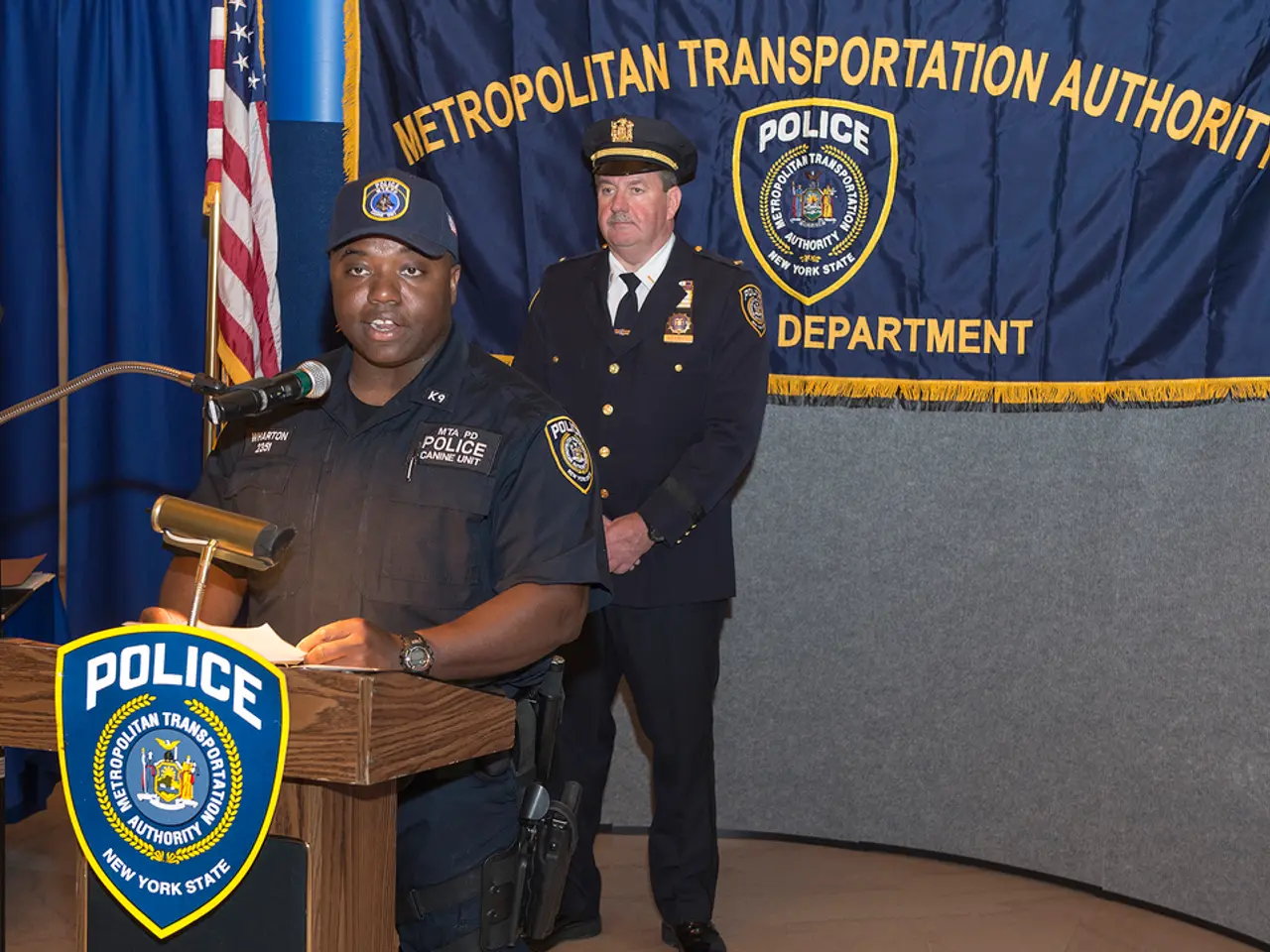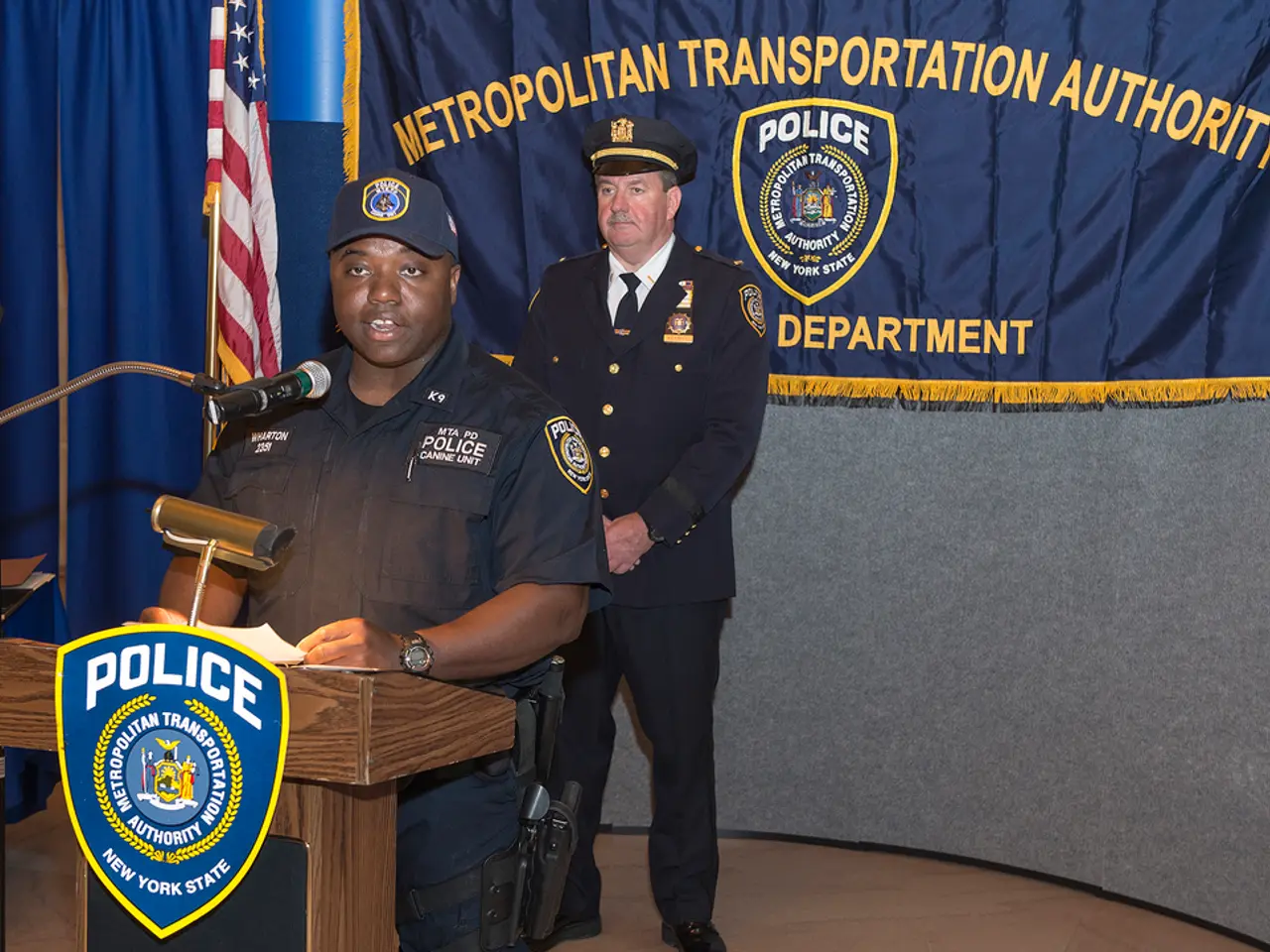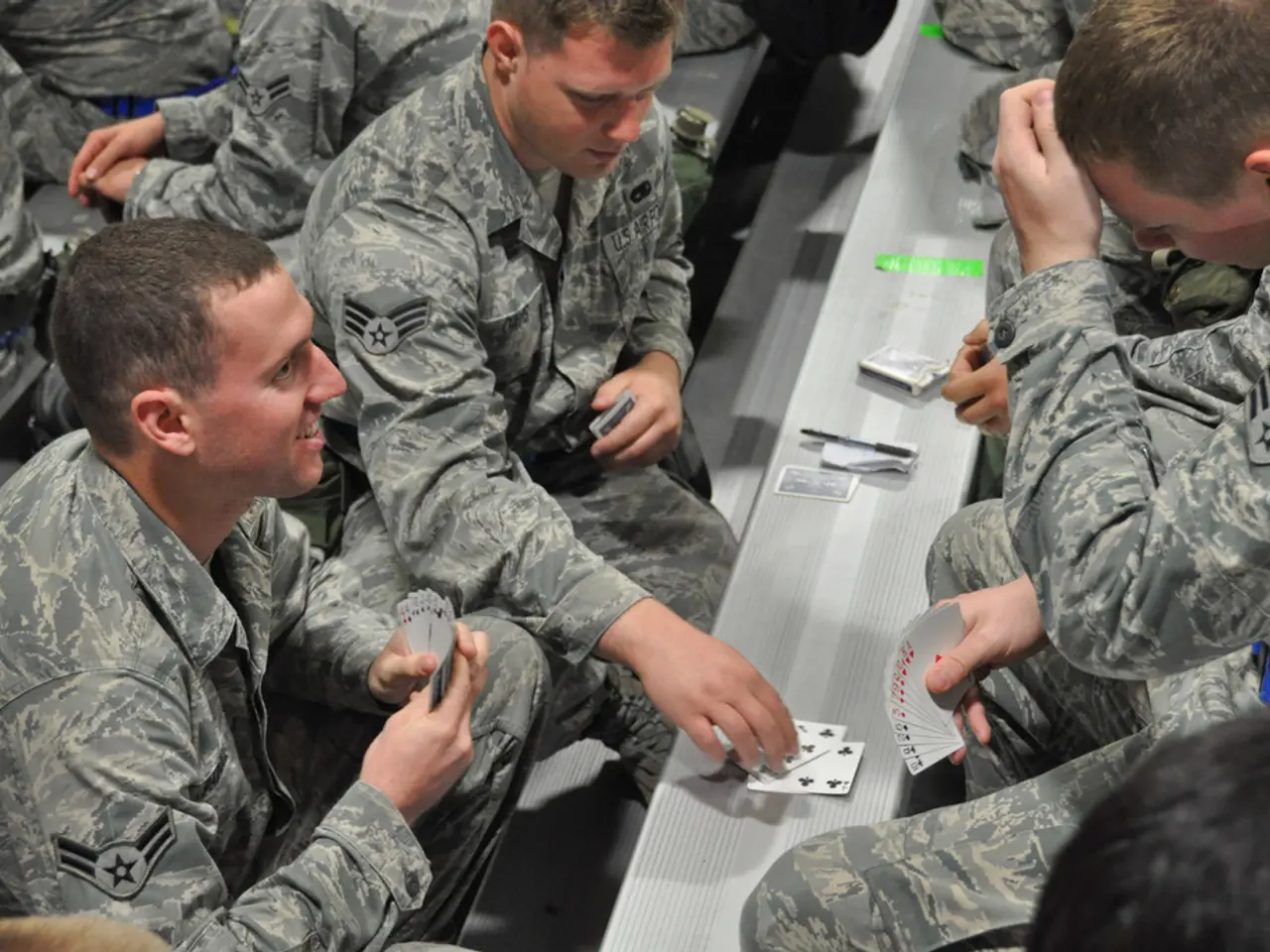Anticipating the GBC gathering on August 4, Thailand stands by, eagerly awaiting an invitation from Cambodia.
As the scheduled General Border Committee (GBC) meeting between Thailand and Cambodia approaches on August 4, 2025, the situation along their shared border remains tense. The ongoing dispute, marked by gunfire, artillery exchanges, and airstrikes in late July 2025, has resulted in 190,104 people seeking shelter in 780 evacuation centres ( sources 1, 2, 3, 4 ).
Rear Admiral Surasan Kongsiri, the spokesperson for the Ad Hoc Centre for the Thailand-Cambodia Border Situation, has urged citizens to stay updated with official information regarding the border situation. He also praised the bravery of soldiers, border patrol police, and security personnel for their crucial role in operations along the Thai-Cambodian border.
In a positive development, military commanders from both Thailand and Cambodia agreed on an overall framework for dialogue and cooperation between their military units in the border region during discussions on July 29. Rear Admiral Surasan reassured evacuees that they can return home once the government confirms the safety of the areas.
However, the Thai Army has condemned Cambodia for denying frontline truths and neglecting its troops in the border conflict. The Civil Aviation Authority of Thailand (CAAT) has imposed a 9-kilometre (5 nautical miles) no-fly zone around airports or temporary landing zones, with violators facing up to 1 year in prison, a 40,000 baht fine, or both. The CAAT has also issued a directive banning unmanned aerial vehicles (UAVs), or drones, in 15 provinces due to security concerns ( sources 1, 2, 3, 4 ).
Experts note that durable peace will require not just talks but potentially third-party arbitration and effective monitoring, as both countries remain reluctant to internationalize the dispute through institutions like the International Court of Justice (ICJ) and prefer bilateral resolutions ( sources 3, 4 ). The upcoming GBC meeting on August 4 is a critical opportunity to advance border cooperation and peace, though challenges related to nationalistic politics, border demarcation, and mutual distrust persist.
The Thai Army is hosting foreign military attachés at the border amid the ongoing dispute with Cambodia. The planned meeting aims at strengthening dialogue mechanisms and reinforcing the ceasefire. Nevertheless, sporadic clashes have reportedly resumed, underscoring ongoing volatility due to nationalist sentiments and historical grievances.
Continued international engagement and robust verification mechanisms will be essential to sustaining peace in the region.
Sources:
- Thai-Cambodian border tensions: ASEAN leaders call for de-escalation
- Thai and Cambodian troops exchange fire along disputed border
- Thailand-Cambodia border dispute: Why it matters
- Thailand and Cambodia: A history of border disputes
- Despite ongoing war-and-conflicts along the Thai-Cambodian border, military commanders from both countries agreed on a framework for dialogue and cooperation, which suggests a potential step towards peace.
- The general news in the region is dominated by the border dispute between Thailand and Cambodia, and experts argue that durable peace will require not just talks but potentially third-party arbitration and effective monitoring, particularly as both countries are reluctant to internationalize the dispute.







